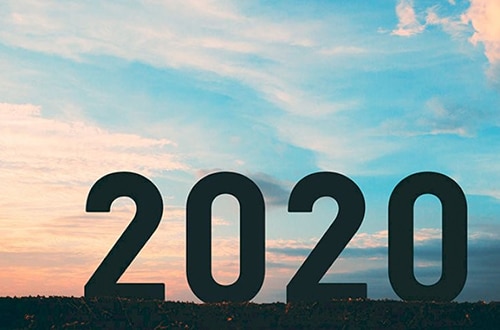The year that wasn’t meant to be & what’s in store for Australia’s SMEs.

It’s probably not necessary to emphasise how much 2020 has, and continues to be, dominated by the global COVID-19 outbreak. But for Australia, 2020 didn’t exactly get off on the right foot even before there were murmurings of an impending pandemic; the national bushfire emergency was already dampening lackluster economic growth forecasts after an enviable 30-year run of good fortune.
So, let’s take a look at what’s in store for Australia’s SMEs over the next few months, according to our friends at MyBusiness.
A time to re-evaluate
As worries around Australia’s slow growth turn to fears for survival in a global economy that appears to be winding back the clock, many SMEs have been quickly re-evaluating their position and charting their path to make it through. Indeed, if there’s one thing that 2020 has taught us so far, it’s that sticking to the status quo simply won’t cut it anymore — the question is, how will you play it?
To consider how your business might navigate this unfamiliar environment, it’s important to think about how the SME landscape is likely to shape up over the next few months. Or, in other words, what might be the opportunities, headwinds, and where should your expectations fall.
Success or survival
To start with, growth and expansion for the 2020–2021 financial year are, unfortunately, likely to be limited to certain industries. For example, while there are winners and losers in every recession, the influence of the pandemic on Australian consumers is likely to accelerate the success of retailers and manufacturers that focus on products which add value to people’s lives — such as things related to health and wellbeing, family time or the home environment, among others.
Of course, what this means will be different for every business. While 2020 could turn out to be a bumper year for some SMEs by chance, others might find ways to mitigate losses by shifting their focus to emerging opportunities. At the other end of the spectrum, however, businesses in sectors such as hospitality, tourism, travel and events will be much more restricted, perhaps looking more towards strategies designed to help bide time until the good times return.
Business will be done differently
Surviving or succeeding over the coming months won’t just be about “what” your business is either, but also “how” you do business in a world where digitisation has never been more relevant.
Even before the pandemic disrupted the business environment, cashless payments and e-commerce solutions were already tipped to be increasingly essential tools because of changing consumer habits. Right now, though, demand for these solutions is not just being driven by convenience, but also short-term necessity.
With social distancing and minimising contact likely to remain front of everyone’s mind for the foreseeable future, there’s no doubt many SMEs (if they haven’t already) will be looking to give customers peace of mind by reducing or eliminating cash payments. For this to work well, however, it’ll be essential to choose unrestrictive card payment solutions, which accept all transaction types and are priced fairly with SMEs in mind. Similarly, we’re seeing an uptick in the number of businesses exploring how they can leverage the safety and reliability of e-commerce when they can no longer take in-store purchases for granted. And even after COVID-19, there’s every chance that consumers will stick with their new buying habits. Perhaps, businesses that may never have previously considered selling or transacting online will enter the e-commerce space in the months ahead.
Resourcing to make things happen
And then there’s finance. With cash flow a top challenge for a lot of businesses in 2020, the Australian government has launched various support schemes to throw lifelines to those battling a sudden downturn in trade. But it’s not just about hanging on. The question is, will these alone be enough to get all businesses up and running to speed again in a post-pandemic world?
There’s little doubt that responsiveness, opportunism and strategic flexibility in 2020 could lead to faster recovery and more competitive business activity in 2021 — especially as COVID-19 is likely to leave a lasting impact for the years ahead. But this approach and the initiatives that might come with it, often come at a cost.
For this reason, business leaders today should remain open to making timely, well-balanced decisions that could boost business endeavours through the growing range of alternative finance options suited to SMEs.
Conclusion
Currently, and for some time to come, we’ll be navigating uncharted territory — a place where no business owner has ever been before. But businesses shouldn’t become paralysed by uncertainty.
One thing that is certain is that there are better times ahead, so if we stay aware and make smart choices now, we could rise back up sooner than we think.
Source: MyBusiness.com.au/management